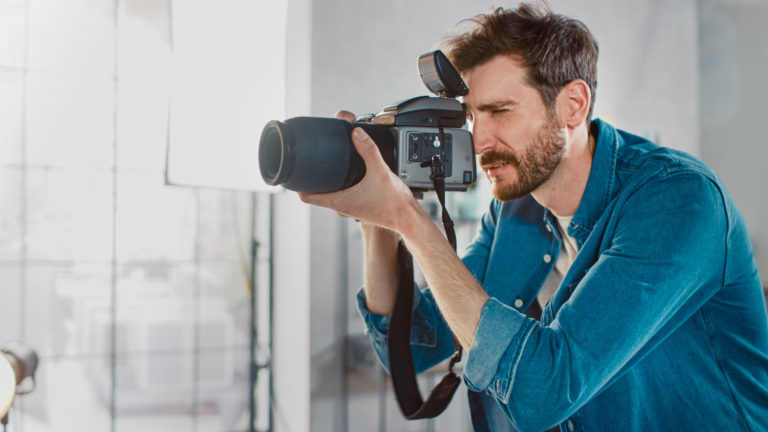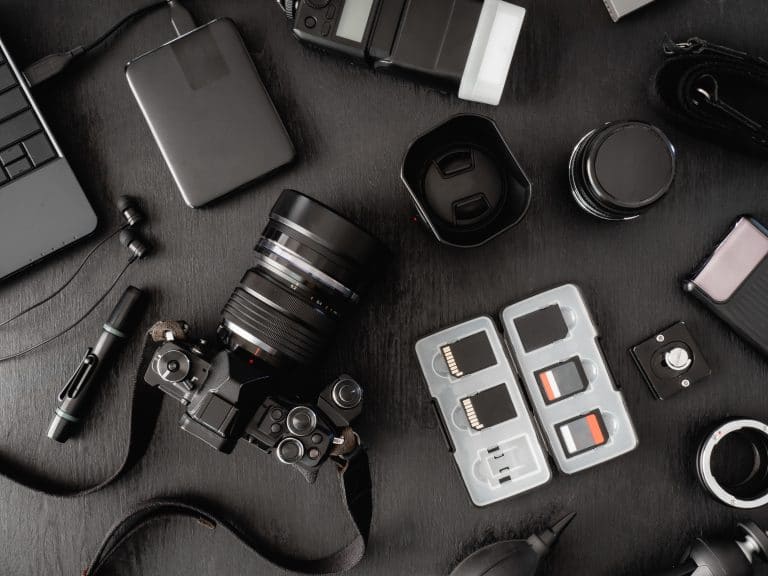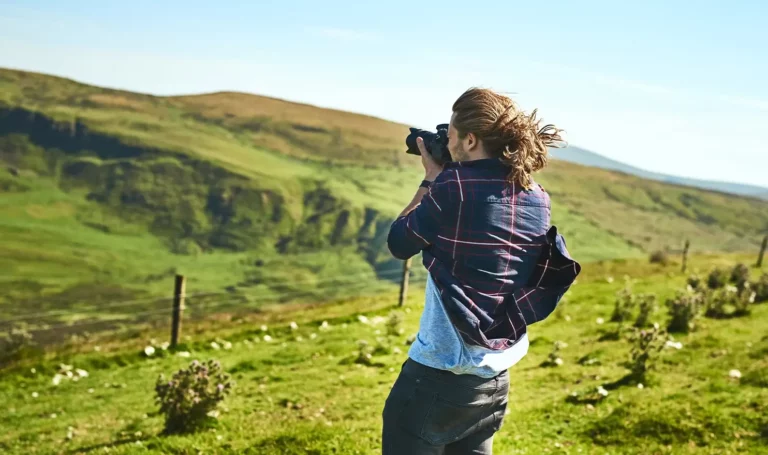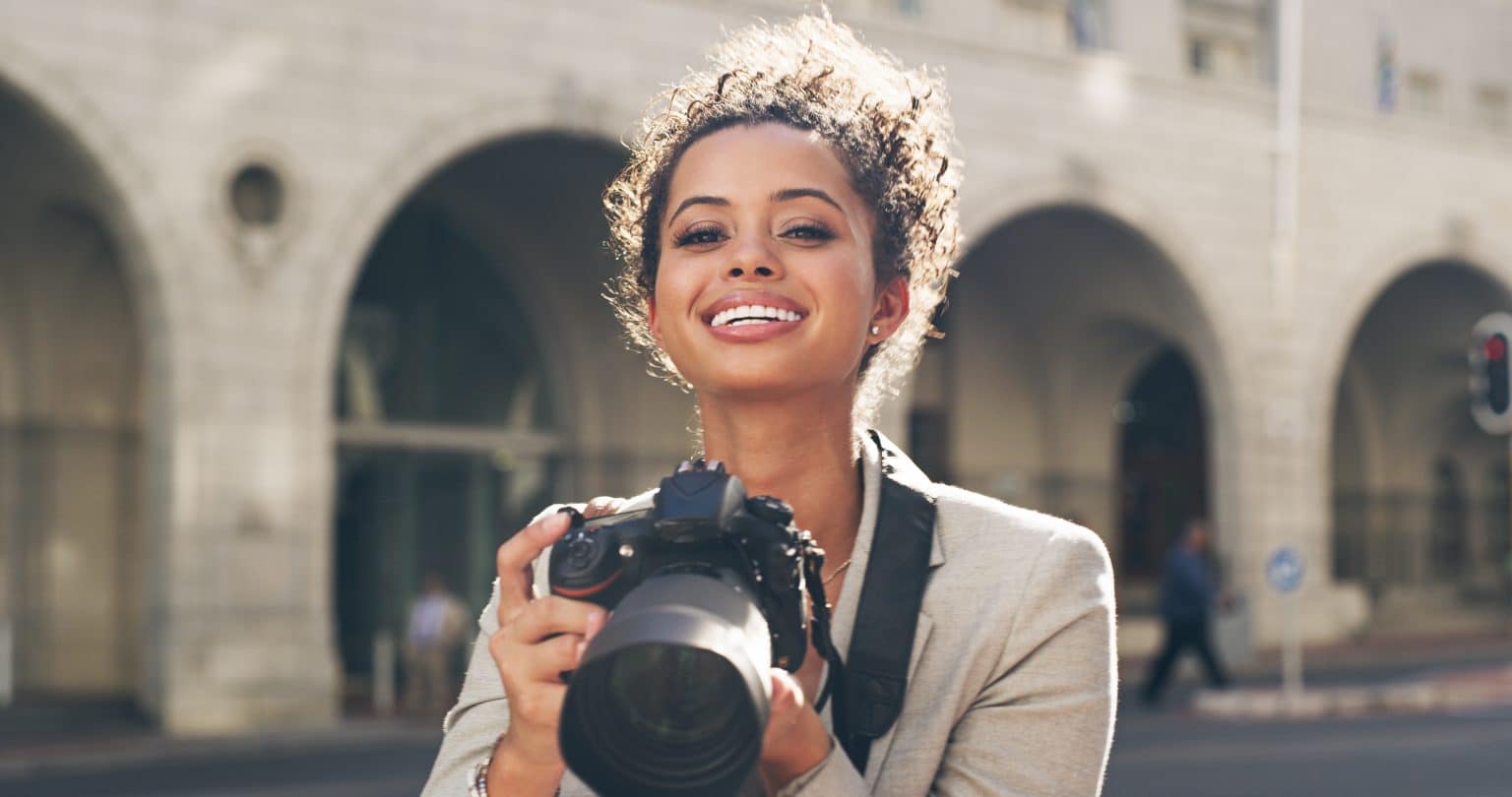Photography insurance might sound like just another bill you’d rather not add to the pile. But did you know that this “other bill” can protect your finances and your business from taking a hit or even permanently shutting down?
Photography insurance is designed to protect you from common risks inherent to the work you do — no matter how careful you are.
But insurance can be confusing — even if you’ve had coverage in the past. So check out the info and examples below to see what’s included, what’s optional, and what you need to protect your career and reputation.
4 Types of Photography Business Insurance & How They Work Together
Here’s what you need to know about four essential types of insurance for professional photographers and how the coverages work together:
- General liability: designed to cover third-party injuries and property damage claims
- Professional liability: add-on coverage for claims related to your services and advice
- Camera equipment coverage: protects your business gear and equipment from theft or damage
- Cyber liability: covers costs incurred from claims, restoration, and more in the case of a data breach or other cybercrime
Let’s cover essential photography business insurance types and how they can help you market your photography business.
Photographers Liability Insurance
With Full Frame Insurance (FFI), your base insurance policy includes five types of photographer liability coverages:

General Liability
General liability defends against claims of third-party bodily injuries or property damage during photoshoots. For example, you may be photographing a family portrait, and you accidentally knock over and damage an urn with a family member’s ashes in it. The family could sue you for property damage.
Or, you’re photographing a baby shower, and one of the guests trips over your tripod and sustains a sprained wrist, requiring a trip to the emergency room. They sue you to pay for their medical bills.
Medical Expense Limit
This is no-fault coverage for up to $5,000 in third-party medical-related expenses. It’s designed to cover minor medical bills, regardless of whether you’re at fault for the incident, to preclude unnecessary claims.
Damage to Premises Rented
Also known as fire legal liability coverage, it’s there to protect you in case studios or other locations you rent sustain fire damage, though it has broader third-party property damage coverage for the first 7 (seven) days that you lease a space.
For example, an exposed or faulty wire could start a fire while you’re out shopping for new photography equipment. Or, while moving into a newly-rented studio, you accidentally damage flooring or drywall, and the landlord wants you to pay for repairs.
We include a $300,000 limit for qualifying damages in addition to coverage available through the general liability coverage of your policy.
Personal and Advertising Injury
As opposed to general liability coverage for physical injuries to third parties, personal and advertising injury defends against non-physical “injuries” to third parties. These are things like claims of libel and slander, invasion of privacy, wrongful arrest, defamation, copyright infringement, false advertising, and more.
For example, you advertise that you can shoot professional headshots and get them to the client the same day. A client who needed the headshot to meet a one-day deadline claims it took you three days to get their headshots delivered and sues you for false advertising.
Products-Completed Operations
Covers you from defective products you sell to your customers, or issues that arise out of your services after the fact.
For example, let’s say you sell hardbound albums as an add-on to wedding photo shoots. Your client receives their album but half of the images are blurry. They blame you for sending a defective product and decide to sue.

Additional Insureds (Optional)
Many venues, events, and photoshoot destinations (like state or national parks) ask you to add them as additional insureds to your policy. Why? If someone tries to sue you and the venue for extra money from an incident that arose out of your work, the venue can also be protected under your coverage.
For example, the mother of the bride trips over your tripod stand during the reception, falls, and requires medical attention. They might decide to sue both you and the wedding venue. But since the accident happened because of your setup, as a named additional insured on your policy, the venue can be protected by your insurance.
Being able to add qualified third parties as additional insureds is often a requirement to lease space as well as work at venues and events. It also gives you a leg up over competitors who don’t have the ability to offer this kind of peace of mind.
You can get one or unlimited additional insureds for a nominal, one-time fee with an FFI annual or event policy.
The coverages included in your base policy are just the tip of the photography insurance iceberg. You might have noticed, for instance, that you have other exposures – from your online data and files to your camera and gear – that aren’t protected yet! So let’s jump into three optional coverages you can use to protect your business more fully.
Camera Equipment Coverage (Inland Marine)
You might not realize that photography business insurance doesn’t cover your gear! But you can protect this huge investment by adding camera equipment insurance (aka Inland Marine coverage) to any annual FFI photographer insurance policy.
Your tripod, lighting tools, lenses, and camera body made it possible for you to become a professional photographer, land jobs, and make money. Each item plays an important role in capturing the perfect shot. You’ve likely spent a substantial amount of money on these items.
Your gear goes to different venues, studios, and on-site locations. It’s susceptible to damage and theft, and repairs or replacements can be costly or even render your business out of commission.
FFI’s camera equipment insurance expands coverage to your business equipment, from the gear you need to do your job to the equipment you need to run it, like your laptop and smartphone. Our most popular plan, Annual+, includes the base tier of camera equipment coverage.
You can also add it to any annual plan. There are five tiers to choose from, starting at $55/year, which covers $1,000 per item with a $5,000 aggregate (the most your policy will pay during the policy year). If you want more coverage, you can increase your coverage up to $15,000 per item and $75,000/policy year.

Failure to Deliver (Professional Liability / E&O)
Failure to deliver insurance, commonly known as errors and omission (E&O) or professional liability for photographers, is coverage that protects you from on-the-job mistakes, things you didn’t do, or scenarios that weren’t your fault — any of which could result in costly claims or even take aim your business’s reputation as a professional photographer.
For example, you may be on your way to photograph a model in your studio but get a last-minute call that a family member is in the emergency room. You immediately call your model to cancel the photoshoot. A few days later, they hit you with a claim saying you were unprofessional for canceling at the last minute and not having a backup photographer available.
Failure to deliver is an optional add-on coverage for FFI’s annual policies. It only costs roughly $8 a month or $100 a year. We strongly recommend you get this coverage, especially if you also teach in-person or online photography classes or workshops.
Cyber Liability (Data Breach)
More and more technology is available to help professional photographers in all aspects of their businesses. And while technology is advancing, so are cybercriminals and data breaches. The Identity Theft Resource Center said there were approximately 1 billion data breach victims in the first half of 2024 alone.
If you’re thinking: “Why would cybercriminals want my data? I’m small fries compared to larger companies.” Think again.
Cybercriminals are relentless and can steal from anyone…even you! Clients can sue you for breach of privacy If hackers steal data like:
- Client names and contact information
- Payment methods (i.e., credit card numbers and banking information)
- Photos or RAW files of clients
- Signatures from signed contracts — and more
Cyber liability insurance (aka data breach insurance) can cover the costs of damages, data recoveries, investigations from cybersecurity experts, legal fees, and more. You can add it to any annual FFI policy.
Learn more about all the ways hacking, malware, phishing, and other cyber crimes could impact your photography business.
Why Choose Full Frame for All Types of Professional Photographer Insurance?
You became the hero of your own story when you decided to launch your own professional photography business. We understand that purchasing the right tools, attracting customers, and delivering quality photographs takes significant time and effort.
Keep saving the day. Protect your investment by getting your policy – it only takes a few minutes. And if you have any questions, contact us to speak with a licensed, non-commissioned U.S.-based agent.

Frequently Asked Questions (FAQs) Photographers Have About Insurance
What Type of Insurance Should Professional Photographers Have?
Professional photographers should have these types of insurance:
- Camera equipment insurance
- Professional liability insurance (errors and omissions)
- General liability insurance
- Cyber liability insurance
Do Freelance Photographers Need Insurance?
Yes — freelance photographers need insurance because it can protect them from risks like third-party bodily injuries and property damage, stolen or damaged equipment, contract misinterpretations, libel and slander, data breaches, and more.
How Much Does Insurance Cost for Professional Photographers?
The cost of insurance for professional photographers starts at $12 a month or $129 a year. It can vary depending on your business income, optional add-on coverages, and the number of additional insureds on your policy.
What’s the Best Insurance for Professional Photographers?
The best insurance for professional photographers combines competitive pricing alongside highly-rated coverage and customer support with flexible, easy-to-customize options for general and professional liability, camera insurance, and protection from data breaches.




